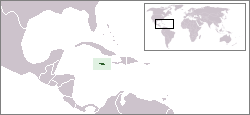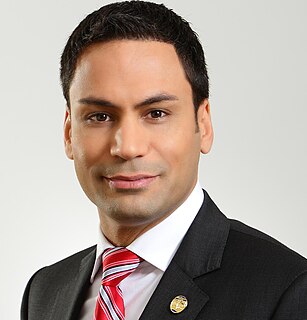Related Research Articles

Louise Bernice Arbour is a Canadian lawyer, prosecutor and jurist.

The Faculty of Law is one of the professional graduate schools of McGill University in Montreal, Quebec, Canada. It is the oldest law school in Canada, and continually ranks among the best law schools in the world. The faculty is known for its holistic approach though highly selective and competitive process for admission. Only 180 candidates are admitted for any given academic year. For the year 2021 class, the acceptance rate was 10%. McGill Faculty of Law has consistently ranked as the top law school for civil law, a top law school for common law, the most number of Supreme Court clerkships of any law school in Canada, and consistently outranks Europe, Asia, and Latin America's top civil law schools.

The Courts of Ireland consist of the Supreme Court, the Court of Appeal, the High Court, the Circuit Court, the District Court and the Special Criminal Court. With the exception of the Special Criminal Court, all courts exercise both civil and criminal jurisdiction, although when the High Court is exercising its criminal jurisdiction it is known as the Central Criminal Court.
Morris Jacob Fish, was a judge of the Supreme Court of Canada from 2003 to 2013.
Criminal transmission of HIV is the intentional or reckless infection of a person with the human immunodeficiency virus (HIV). This is often conflated, in laws and in discussion, with criminal exposure to HIV, which does not require the transmission of the virus and often, as in the cases of spitting and biting, does not include a realistic means of transmission. Some countries or jurisdictions, including some areas of the U.S., have enacted laws expressly to criminalize HIV transmission or exposure, charging those accused with criminal transmission of HIV. Other countries charge the accused under existing laws with such crimes as murder, manslaughter, attempted murder, assault or fraud.
John Howard Gomery was a Canadian jurist from Quebec. He was a Justice of the Quebec Superior Court from 1982–2007, and appointed Commissioner for the Royal Commission investigating the Sponsorship scandal in 2004.

William Ian Corneil Binnie is a former puisne justice of the Supreme Court of Canada, serving from January 8, 1998 to October 27, 2011. Of the justices appointed to the Supreme Court in recent years, he is one of the few appointed directly from private practice. On his retirement from the Court, he was described by The Globe and Mail as "arguably the country's premier judge", by La Presse as "probably the most influential judge in Canada of the last decade" and by the Toronto Star as “one of the strongest hands on the court.”
Marie Deschamps, CC is a former puisne justice of the Supreme Court of Canada. She retired from the court on August 7, 2012. In September 2019, Deschamps was appointed as a member of the National Security and Intelligence Review Agency.
Johnson Aziga is a Ugandan-born Canadian man formerly residing in Hamilton, Ontario, Canada, notable as the first person to be charged and convicted of first-degree murder in Canada for spreading HIV, after two women whom he had infected without their knowledge died.

R v Cuerrier was a 1998 decision by the Supreme Court of Canada, which ruled that knowingly exposing a sexual partner to HIV constitutes a prosecutable crime under Canadian law.
The precise definitions of and punishments for aggravated sexual assault and aggravated rape vary from nation to nation and state to state within nations.

Lesbian, gay, bisexual, and transgender (LGBT) persons in Jamaica face legal and social issues not experienced by non-LGBT people. Sexual intercourse between same-sex partners is legally punishable by imprisonment.
Andre Chad Parenzee is an HIV-positive Australian man convicted of three counts of endangering human life by exposing others to the risk of infection through unprotected sex as he claimed to them that he was HIV seronegative. In one instance he actually transmitted the virus.

Gerry Sklavounos, B.C.L., LL.B., is a former Quebec politician. He was the Member of the National Assembly for the electoral district of Laurier-Dorion. He is currently an international public affairs and business development consultant at Hygaemon Strategy Corp..
Carl Desmond Leone is a Canadian businessman from Windsor, Ontario. Leone was jailed after pleading guilty in a Windsor court to 15 counts of aggravated sexual assault for not informing his sexual partners of his positive HIV status. It is believed he has been charged with exposing more women to the AIDS-causing virus than anyone in Canadian history. Two of his victims have attempted suicide.
Michael Moldaver is a former Canadian judge. He was a puisne justice on the Supreme Court of Canada from his 2011 appointment by former Prime Minister Stephen Harper until his retirement in 2022. Before his elevation to the nation's top court, he served as a judge at the Ontario Superior Court of Justice and the Court of Appeal for Ontario for over 20 years. A former criminal lawyer, Moldaver is considered an expert in both Canadian criminal law and the Canadian Charter of Rights and Freedoms.
The criminal transmission of HIV in the United States varies among jurisdictions. More than thirty of the fifty states in the U.S. have prosecuted HIV-positive individuals for exposing another person to HIV. State laws criminalize different behaviors and assign different penalties. While pinpointing who infected whom is scientifically impossible, a person diagnosed with HIV who is accused of infecting another while engaging in sexual intercourse is, in many jurisdictions, automatically committing a crime. A person donating HIV-infected organs, tissues, and blood can be prosecuted for transmitting the virus. Spitting or transmitting HIV-infected bodily fluids is a criminal offense in some states, particularly if the target is a prison guard. Some states treat the transmission of HIV, depending upon a variety of factors, as a felony and others as a misdemeanor.
Non-consensual condom removal, or "stealthing", is the practice of a man removing a condom during sexual intercourse without consent, when his sex partner has only consented to condom-protected sex. Victims are exposed to potential sexually transmitted infections (STIs) such as HIV/AIDS, or unwanted pregnancies. Such behaviour may be therefore regarded as sexual assault or rape, and sometimes as a form of reproductive coercion. As of 2020, stealthing is punishable as a form of sexual violence in some countries, such as Germany and the United Kingdom.
Howard Charles Fraser Riddle. is a British retired judge who was the Senior District Judge for England and Wales. He was appointed to that office in 2010.
Rory P. MacCabe is an Irish judge who is a judge of the High Court since January 2022 and is the chairperson of the Garda Síochána Ombudsman Commission. He was a judge of the Circuit Court between 2007 and 2022 and was formerly a barrister and civil servant.
References
- ↑ Peter H. Russell (2007). Canada's Trial Courts: Two Tiers Or One?. University of Toronto Press. p. 85. ISBN 9780802093233 . Retrieved April 19, 2013.
- ↑ "RCMP goes on with own probe of Livent duo". Variety . January 14, 1999. Retrieved April 19, 2013.
- ↑ "Judge acquits HIV-positive Quebec man of sexually assaulting woman". CBC News. May 14, 2009. Retrieved April 19, 2013.
- ↑ "Action Committees: The Executive Committee". Archived from the original on May 16, 2010. Retrieved April 19, 2013.
- ↑ "About Us" . Retrieved April 19, 2013.